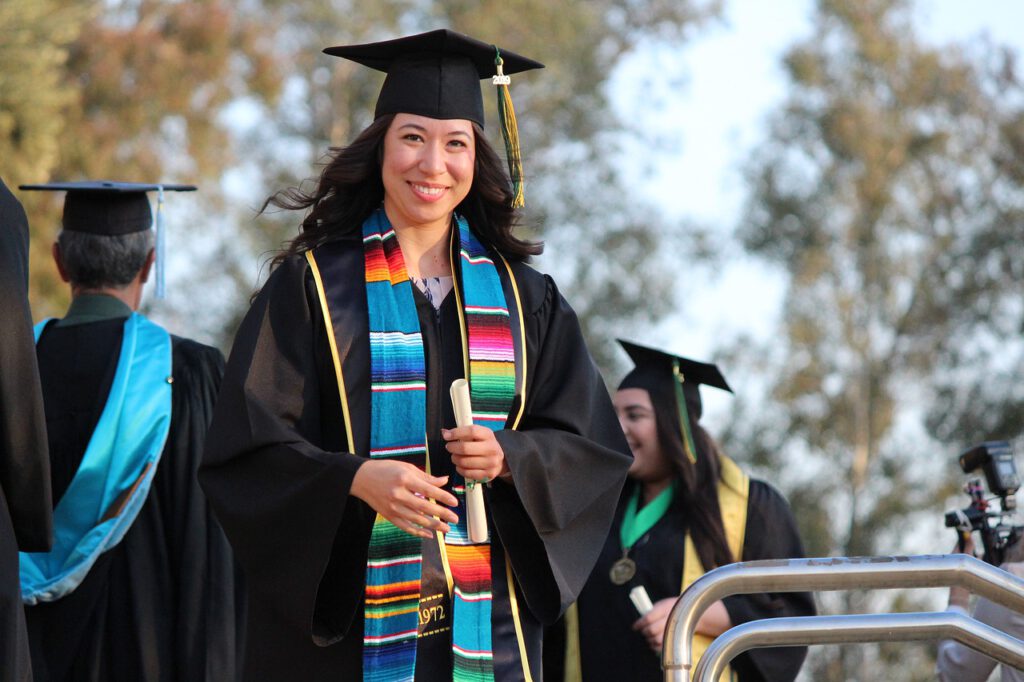Better assessment impresses students but COVID 19 impacts their overall perceptions of value for money

Students are working harder, in smaller classes with more contact hours
A significant and positive shift in student’s experience of assessment and feedback is a standout finding from this year’s annual Student Academic Experience Survey (SAES) published today (11 Jun) by @AdvanceHE and the Higher Education Policy Institute (@HEPI_news).
The findings include:
- 26% of students feel their overall academic experience is better than expected across the board – a strong increase of 6% from last year
- Students are much more likely to cite the quality of feedback as a main reason that their experience was better than expected (37% compared to 29% last year). Students note, in particular, improvements in staff feeding back on draft work and the amount of time staff allocate to commenting on work. 36% of students have their assignments returned within two weeks on average – an increase on 30% last year
- Among students whose experience was better than expected, 39% say this was because of support provided for independent study – an increase of 3% on last year.
Students are working harder, with more weekly contact on average (13.9 hours in 2019 and 14.6 in 2020) and more independent study (13.8 hours in 2019 and 14.1 in 2020).
In another positive indicator of an improving academic experience, class sizes are reducing. Students are spending fewer hours in large classes (51–100 / 101+ other students). Significantly more time is being spent in medium-sized classes (16–50), and there is also a growth in the time being spent in the smallest classes of all (0–5 / 6–15).
The recent trend of improvement in perceptions of value-for-money – 2017 to 2019 inclusive ̶ has not been maintained. This year, the number of students reporting ‘good or very good’ value has declined from 41% in 2019 to 39%. However, the data suggest COVID-19 has had a negative impact on students’ academic experience. Those students who completed the survey from 16 March 2020 onwards were less positive (38% reporting they received ‘good’ or ‘very good’ value) than those who reported before that date (40%). Furthermore, some of the earlier fieldwork coincided with strikes in the sector, and students have reflected in their free-standing comments that the industrial action, as well as COVID-19, influenced their responses.
In a new question this year, students were asked about the main drivers in their decision to go to university. By far the two most significant drivers are ‘to get on the career ladder’ (53%) and ‘to follow interest in a subject’ (47%). Notably, social considerations, such as ‘all my friends are going to university’ (9%), are not strong drivers in decisions to go into higher education.
Other new questions in the Survey focus on the use of technology. Ninety per cent of students report basic technology is used in their teaching but where advanced technology is used (7%), significantly more students say they would choose the same course and university again – a strong endorsement of how using the right technology, which complements the subject matter, can make a material difference to how students view their experiences.
 Alison Johns, Chief Executive of Advance HE, said,
Alison Johns, Chief Executive of Advance HE, said,
“I am delighted and encouraged to see that student feedback on assessment, in particular, has improved along with many other areas of the student academic experience. This follows a great deal of hard work across the whole sector.
“It is a continuing and very significant concern that BAME students are still reporting less positively than White students. I am determined and committed to supporting the sector in addressing these issues through our work in equality, diversity and inclusion (EDI), particularly through the Race Equality Charter. All students should have equal opportunity to enjoy a positive experience and look with hope to their future prospects. It also remains a considerable worry that wellbeing has not improved in particular for LGB+ students. I know institutions are trying hard to tackle these issues and we can all do more working in close partnership.
“We should also carefully note that students express very important views on educational technology. We aim to feed this into our work to support the sector as it transforms to the new environment and challenges brought about by the Coronavirus pandemic.”
 Nick Hillman, Director of HEPI, said,
Nick Hillman, Director of HEPI, said,
“There has never been a more important moment to ask students what they think. Over the past year, they have witnessed industrial action, a global health crisis and a much tougher labour market. They have responded in the best way possible, by working harder than in the past.
“Nonetheless, many students are worried about their own lives, with further falls in wellbeing this year. Some groups, such as Black, disabled and LGB+ students, give less positive responses and need more support.
“The pandemic means institutions are having to change what they do. Although resources will be squeezed, it is vital that they continue listening to all students as they prepare for the next academic year.”
The Student Academic Experience Survey has been running since 2006 and is widely used to support policy and practice changes. This year SAES collected the views of 10,227 full-time undergraduate students studying in the UK. The authors are Jonathan Neves, Head of Business Intelligence & Surveys Advance HE, and Rachel Hewitt, Director of Policy and Advocacy, HEPI.
 UCU general secretary Jo Grady said:
UCU general secretary Jo Grady said:
‘It is clear that students value the teaching and support they receive and want to see universities focus resources on staff. Sadly, universities don’t seem to be getting the message and have already started cutting jobs. The uncertainty brought about by the pandemic risks having huge repercussions for universities, students, staff and the local economies that depend on higher education.
‘Universities need to listen to students who say that staff should be the top priority for investment, and the government needs to provide urgent funding guarantees to remove the uncertainty that higher education currently faces.’
“Comparing 2019 to 2020, there are some noteworthy differences in priority. Although the overall ranking has changed little, all the staff measures (teaching staff, research staff, management staff) have increased significantly. The early part of 2020 has been a year when university staff have been in the spotlight during a period of significant industrial action, and we may speculate here that although students have felt the impact in terms of contact hours lost, the action may also have made students more aware of the role of staff across institutions.”
 Minister for Universities, Michelle Donelan said:
Minister for Universities, Michelle Donelan said:
“As prospective students start to make important decisions about the upcoming academic year, I am very pleased to see evidence of an improved student experience, with longer contact hours and better support.
“‘It is clear that the impact of COVID-19 has, understandably, negatively impacted the experience of some students. As universities prepare for next year, operating in what may be a different learning environment, it is essential that they offer a high quality education for all students, regardless of background.”

Responses